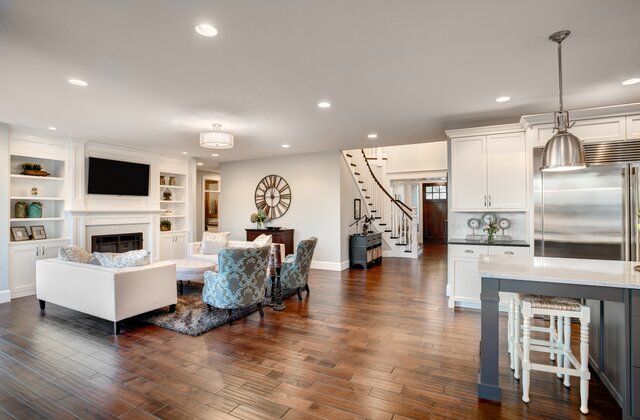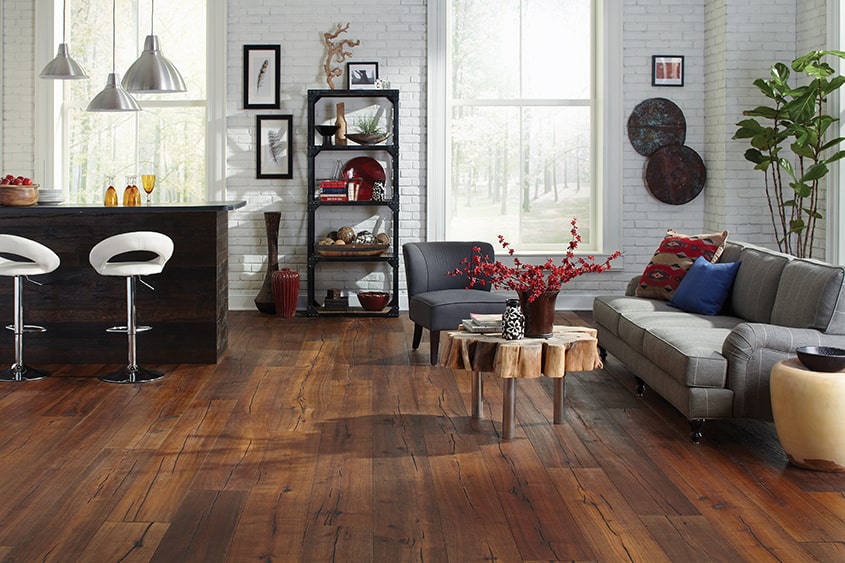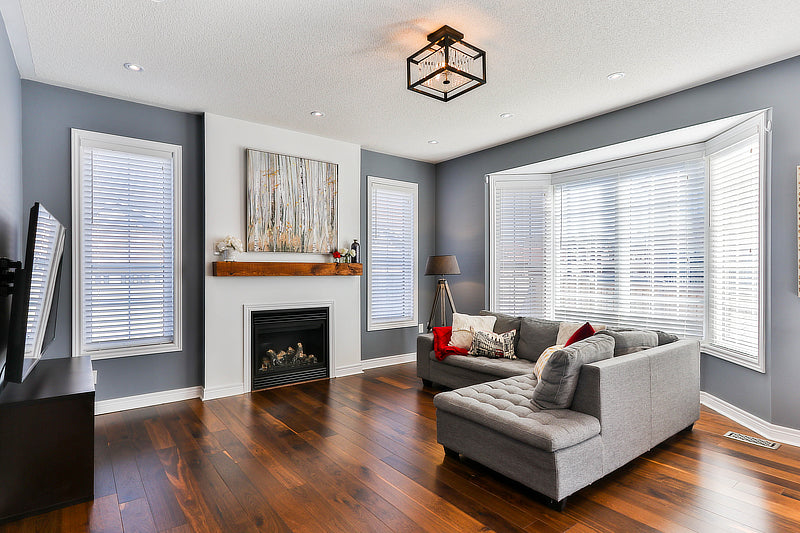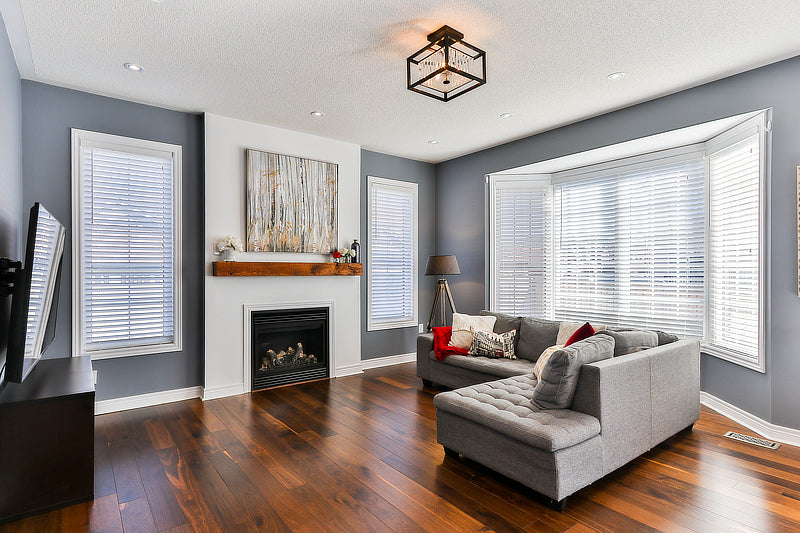When it comes to flooring options, engineered hardwood has emerged as a popular choice that combines the timeless appeal of solid wood with modern technology. Engineered hardwood flooring not only offers aesthetic beauty but also brings a host of experiential benefits that enhance your daily living. In this comprehensive guide, we'll delve into the unique advantages of engineered hardwood flooring, exploring how it transforms your home into a haven of comfort, style, and practicality. Discover why more homeowners are embracing engineered hardwood for an enriching flooring experience.
What Are the Experiential Benefits of Engineered Hardwood Flooring?

1. Durability and Longevity:
Engineered hardwood flooring is designed with layers of real wood stacked in different directions and bonded together. This construction minimizes the natural tendency of wood to expand and contract due to changes in temperature and humidity. As a result, engineered hardwood is highly durable and less susceptible to warping or cupping, ensuring your floors retain their beauty for years to come.
2. Enhanced Stability:
The unique layered structure of engineered hardwood provides exceptional stability. This stability makes it an excellent choice for areas with fluctuating humidity levels, such as kitchens and basements. With reduced movement, engineered hardwood minimizes gaps and ensures a smooth, even surface.
3. Ease of Installation:
Engineered hardwood is designed for a straightforward installation process. Its interlocking or click-and-lock systems make it suitable for both DIY enthusiasts and professional installers. This hassle-free installation translates to reduced labor costs and a quicker transformation of your living space.
4. Variety of Styles and Finishes:
Engineered hardwood offers an array of styles, finishes, and wood species to suit your design preferences. Whether you're drawn to the warm charm of oak or the sophisticated allure of walnut, you'll find a vast selection that allows you to express your unique aesthetic vision.
5. Comfort and Underfoot Feel:
Unlike colder alternatives like tile or stone, engineered hardwood provides a warm and comfortable underfoot feel. Its natural insulating properties make it an inviting choice, especially in areas where you often walk barefoot.
6. Low Maintenance:
Engineered hardwood is relatively easy to maintain. Regular sweeping or vacuuming, coupled with occasional damp mopping, is typically sufficient to keep your floors looking pristine. Engineered hardwood's protective finish helps resist stains and spills, making it suitable for high-traffic areas.
7. Enhanced Resale Value:
Investing in engineered hardwood flooring can significantly enhance the resale value of your home. Its classic appeal and reputation for durability and quality make it an attractive feature for potential buyers.
How Can Homeowners Effectively Maintain And Care For Their Engineered Hardwood Flooring To Ensure Its Long-Lasting Beauty?

Maintaining and caring for engineered hardwood flooring is essential to ensure its long-lasting beauty and durability. With proper care, your flooring will retain its elegance and charm for years to come. Here's a comprehensive guide to help homeowners effectively maintain their engineered hardwood flooring:
Regular Cleaning Routine:
- Sweep or vacuum the floor regularly to remove dirt, dust, and debris that can scratch the surface.
- Use a vacuum cleaner with a soft brush attachment or a microfiber mop to prevent scratching the finish.
Damp Mopping:
- Damp-mop the floor using a well-wrung-out microfiber mop or cloth. Avoid excess water, as standing water can damage the wood.
- Use a mild, pH-neutral hardwood floor cleaner recommended by the manufacturer or a professional.
Immediate Spill Cleanup:
- Wipe up spills promptly to prevent moisture from seeping into the wood and causing damage.
- Use a soft, damp cloth to clean spills, and dry the area thoroughly afterward.
Furniture Protection:
- Attach felt pads to the bottom of furniture legs to prevent scratches and dents when moving or rearranging furniture.
- Lift furniture instead of dragging it to avoid damaging the floor's finish.
Area Rugs and Mats:
- Place rugs and mats in high-traffic areas, near entryways, and in front of sinks to protect the flooring from scratches, spills, and dirt.
Avoid High Heels and Sharp Objects:
- High heels and sharp objects can dent or scratch the surface of engineered hardwood. Take care to prevent such items from causing damage.
Pets' Nails:
- Keep your pets' nails trimmed to prevent scratches on the surface of the floor.
Sunlight Protection:
- Use curtains, blinds, or UV-protective window film to minimize direct sunlight exposure, as excessive sunlight can cause fading over time.
Regular Inspection:
- Periodically inspect the flooring for any signs of damage, scratches, or wear. Address any issues promptly to prevent further deterioration.
Avoid Harsh Cleaners:
- Avoid using abrasive cleaners, wax, oil-based soaps, or products containing ammonia or vinegar, as these can damage the finish of the flooring.
Maintain Proper Humidity:
- Maintain consistent humidity levels in your home, especially during extreme weather conditions, to prevent the wood from expanding or contracting excessively.
Protect Against Scratches:
- Place mats or rugs at entrances to trap dirt and debris before it reaches the flooring. This prevents potential scratches from gritty particles.
Professional Maintenance:
- Consider professional cleaning and maintenance every few years to refresh the finish and keep your engineered hardwood flooring looking its best.
By following these maintenance tips and establishing a regular cleaning routine, homeowners can protect the beauty and longevity of their engineered hardwood flooring. With proper care, your flooring will continue to enhance the aesthetics of your home while providing a comfortable and inviting atmosphere for years to come.
How Does The Durability Of Engineered Hardwood Flooring Compare To Traditional Solid Wood Flooring Options?

The durability of engineered hardwood flooring is a key factor that often makes it a preferred choice for homeowners over traditional solid wood flooring options. While both engineered hardwood and solid wood have their merits, engineered hardwood offers certain advantages in terms of durability and stability. Here's a comparison of the durability of engineered hardwood flooring and traditional solid wood flooring:
Engineered Hardwood Flooring:
- Layered Construction: Engineered hardwood consists of multiple layers of wood that are bonded together in a cross-grain pattern. This layered construction enhances its strength and stability, reducing the likelihood of warping, cupping, or splitting.
- Moisture Resistance: The layered construction of engineered hardwood makes it more resistant to changes in humidity and moisture compared to solid wood. It is less prone to expanding or contracting in humid environments, making it suitable for areas like basements and kitchens.
- Durability: Engineered hardwood is designed to be highly durable. Its layered structure and quality bonding ensure that it can withstand the demands of everyday foot traffic, making it a practical choice for high-traffic areas in homes.
- Installation Versatility: Engineered hardwood's stability allows for various installation methods, including floating, glue-down, and nail-down. This versatility simplifies the installation process and contributes to the long-term durability of the flooring.
- Eco-Friendly Use of Resources: Engineered hardwood often uses a thin layer of real hardwood veneer on top of less expensive wood materials for its core. This efficient use of resources is more environmentally friendly while still providing the beauty of hardwood.
Traditional Solid Wood Flooring:
- Natural Beauty: Solid wood flooring offers the timeless appeal of genuine wood. Its natural beauty, texture, and grain patterns add character and charm to any space.
- Refinishing Potential: Solid wood can be sanded and refinished multiple times, allowing homeowners to restore its appearance and remove surface imperfections over the years.
- Susceptibility to Moisture: Solid wood is more susceptible to moisture-related issues, such as warping and cupping, especially in environments with high humidity levels. It may not be ideal for basements or areas prone to moisture.
- Exposure to Temperature Changes: Solid wood can expand and contract with changes in temperature and humidity, potentially leading to gaps between boards or other structural issues.
- Installation Limitations: Solid wood flooring may require more complex installation methods, and it may not be suitable for all subfloor types or environments.
In summary, engineered hardwood flooring generally offers enhanced durability and stability compared to traditional solid wood flooring. Its layered construction, resistance to moisture, and versatile installation methods contribute to its long-lasting performance. However, both options have their strengths, and the choice between engineered hardwood and solid wood will ultimately depend on your specific needs, preferences, and the characteristics of your living space.
Final Thoughts On The Benefits of Engineered Hardwood Flooring

Engineered hardwood flooring goes beyond being a simple floor covering; it offers an enriching flooring experience. From durability and stability to comfort and style, the experiential benefits of engineered hardwood make it a superior choice for homeowners seeking the perfect blend of elegance and practicality. With its enduring beauty and remarkable qualities, engineered hardwood transforms your space into a sanctuary of comfort and sophistication that will be cherished for generations to come. Embrace the future of flooring with engineered hardwood and elevate your home's aesthetics and living experience.
Other flooring blog articles you may want to read:
The Benefits of Laminate Flooring: Superior to Other Flooring Options?
Vinyl Plank vs. Vinyl Sheet Flooring: Which is Right for You?
